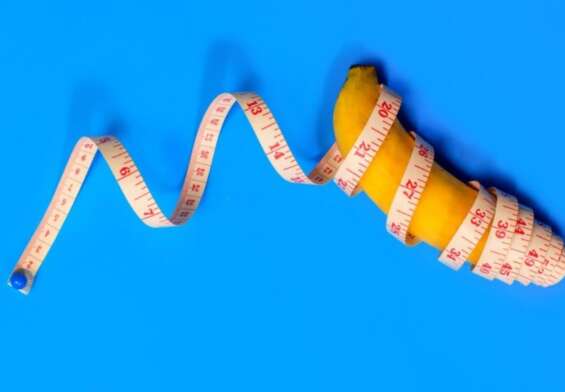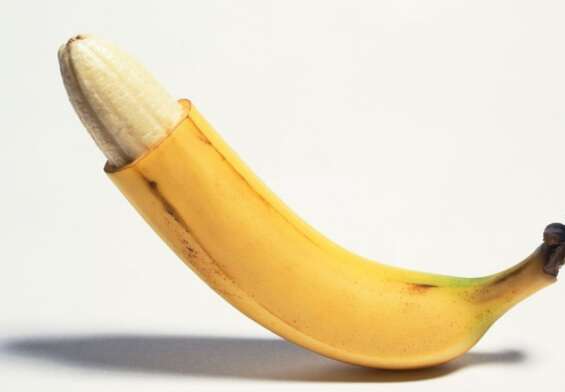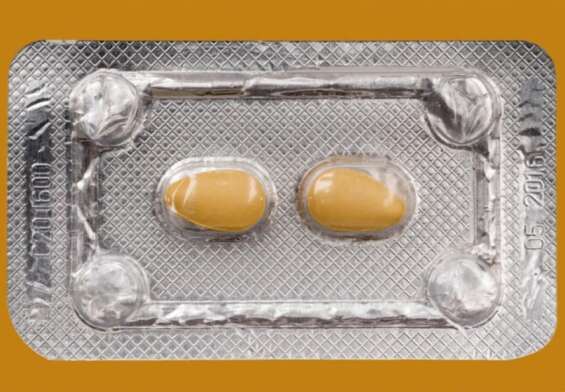
Semen Nutritional Value: What You Need to Know
Hey there, FitGAG readers! You may have heard some rumors about the nutritional value of semen and whether it’s actually safe to consume. Well, the truth may surprise you! In this article, we’ll dive deep into the composition of semen, semen nutritional value, the benefits and risks of consuming it, its use as a fertilizing agent, and even some alternative uses you probably never even considered. So grab a protein shake and let’s get started!
Semen Composition
Semen, often referred to as “cum,” is a bodily fluid produced by the male reproductive system during ejaculation. It contains a variety of substances, including sperm cells, enzymes, and nutrients that support the fertilization process. In this section, we will discuss the various components that make up semen and their importance.
Overview Of Semen Composition
Semen is a complex fluid consisting of sperm cells and various secretions from the male reproductive system. The fluid is comprised of approximately 5% sperm cells and 95% seminal plasma. The composition of semen can vary from person to person, but typically it contains the following:
- Fructose: A type of sugar that provides energy for the sperm cells.
- Enzymes: Help the sperm cells penetrate the egg.
- Vitamin C: Protects the sperm cells from damage caused by free radicals.
- Prostaglandins: Help stimulate the female reproductive system and increase the chances of fertilization.
- Zinc: Important for sperm cell production and overall reproductive health.
Semen Volume
The average volume of semen per ejaculation is between 2 to 5 milliliters (ml). However, this can vary depending on a person’s age, diet, and overall health. A lower semen volume may indicate a problem with the reproductive system or a decrease in fertility.
Sperm Count
Sperm count refers to the number of sperm cells in a given volume of semen. The normal range for sperm count is between 15 million to 200 million sperm cells per milliliter of semen. A low sperm count can make it difficult to conceive, while a high sperm count may increase the chances of fertilization.
Sperm Motility
Sperm motility refers to the ability of the sperm cells to move and swim through the female reproductive system. The higher the percentage of motile sperm cells, the greater the chances of fertilization. Poor sperm motility can be a sign of infertility.
Sperm Morphology
Sperm morphology refers to the size and shape of the sperm cells. Normal sperm cells should have a well-defined head, mid-piece, and tail. Abnormal sperm morphology can affect the ability of the sperm cells to fertilize an egg.
Nutritional Value Of Semen
Have you ever wondered about the nutritional value of semen? While it may seem like an unusual topic, the composition of semen can actually provide some surprising benefits to those who consume it. Let’s take a closer look at the nutritional value of semen and what it has to offer.
Here is a table of the nutritional value of semen per 3.7 ml (1 tablespoon) based on data from the United States Department of Agriculture (USDA) and other sources:
| Nutrient | Amount per 3.7 ml (1 tablespoon) |
| Calories | 7 |
| Protein | 0.5 grams |
| Fructose | 0.16 grams |
| Glucose | 0.05 grams |
| Zinc | 0.11 milligrams |
| Calcium | 0.14 milligrams |
| Magnesium | 0.04 milligrams |
| Phosphorus | 0.09 milligrams |
| Potassium | 0.05 milligrams |
| Sodium | 0.04 milligrams |
| Citric acid | 0.14 milligrams |
| Chlorine | 0.13 milligrams |
Calories In Semen
One of the most common questions people ask is how many calories are in semen. Well, the answer may surprise you – semen actually contains very few calories, typically less than 10 calories per ejaculation. So, if you’re worried about the calorie content, you can rest easy.
Protein Content In Semen
Semen is a rich source of protein, containing approximately 5 grams per ejaculation. This makes it a great source of protein for those who are looking to build muscle or recover after a workout. In fact, some bodybuilders have even claimed that consuming semen has helped them to achieve better results in the gym.
Amino Acids In Semen
Semen is also rich in a variety of amino acids, which are the building blocks of protein. These include arginine, cysteine, glycine, and glutamine. These amino acids have a number of benefits for the body, including improving immune function, reducing inflammation, and promoting wound healing.
Vitamins In Semen
Semen contains a number of vitamins, including vitamin C, vitamin B12, and vitamin E. Vitamin C is a powerful antioxidant that can help to boost the immune system and protect against disease. Vitamin B12 is important for nerve function and the production of red blood cells. Vitamin E is important for skin health and can help to reduce inflammation.
Minerals In Semen
Finally, semen contains a variety of minerals, including calcium, magnesium, potassium, and zinc. These minerals are important for a wide range of bodily functions, including bone health, muscle function, and immune function. Zinc, in particular, is important for male reproductive health and has been shown to improve sperm count and motility.
Benefits Of Consuming Semen
Let’s face it, the idea of consuming semen may not be everyone’s cup of tea. However, did you know that there are several benefits to consuming semen? Yes, you heard it right! Semen is not just a byproduct of sexual activity, it is packed with nutrients that can offer various health benefits.
Here are some of the benefits of consuming semen that might just change your mind about it:
Boosts Mood And Reduces Stress
Semen contains mood-boosting hormones such as oxytocin, serotonin, and progesterone. These hormones help to reduce stress levels, lower anxiety, and promote feelings of happiness and well-being. In fact, a study conducted at the State University of New York found that women who engaged in unprotected sex were less likely to suffer from depression than those who used condoms.
Enhances Fertility
Semen is rich in several nutrients such as zinc, vitamin C, and selenium, which are essential for male fertility. These nutrients can improve sperm count, motility, and morphology, and help to increase the chances of conception. In addition, consuming semen during intercourse can also help to improve the chances of conception by ensuring that the sperm reaches the cervix.
Promotes Skin Health
Semen contains amino acids such as spermine and spermidine, which have anti-aging properties. These amino acids can help to smooth out wrinkles, reduce fine lines, and improve skin texture. Some beauty experts even recommend using semen as a facial mask to reap its skin rejuvenating benefits.
Supports The Immune System
Semen contains several compounds such as cytokines, TGF-beta, and prostaglandins, which help to boost the immune system. These compounds can help to fight off infections and reduce inflammation, thus promoting overall health and well-being.
Acts As An Anti-Depressant
Semen contains high levels of mood-boosting hormones such as oxytocin, serotonin, and melatonin. These hormones can help to alleviate symptoms of depression and anxiety, and promote feelings of relaxation and calmness.
Risks Of Consuming Semen
While there are some purported benefits to consuming semen, it is important to acknowledge the potential risks associated with this practice. Here are some of the main risks to keep in mind:
Exposure To Sexually Transmitted Infections
Semen can potentially transmit sexually transmitted infections (STIs), including HIV, chlamydia, and gonorrhea. If you or your partner have any STIs, it is important to avoid consuming semen or engaging in any sexual activity that could lead to transmission.
Adverse Allergic Reactions
Some people may have an allergic reaction to semen, which can result in symptoms such as itching, swelling, and difficulty breathing. If you experience any of these symptoms after consuming semen, seek medical attention immediately.
Possible Transmission Of Diseases
In addition to STIs, semen can also transmit other diseases, such as hepatitis B and C. It is important to be aware of the risks associated with consuming semen, and to practice safe sex to prevent the transmission of any diseases.
Unintended Pregnancy
Consuming semen can also lead to unintended pregnancy. If you are not using contraception, it is important to be aware of this risk and to consider alternative methods of birth control.
It is important to note that these risks can be minimized or eliminated through safe sex practices and other precautions. For example, using condoms during sexual activity can help prevent the transmission of STIs and other diseases, while also reducing the risk of unintended pregnancy.
Semen As A Fertilizing Agent
Semen is not only a source of pleasure but also a vital tool for reproductive purposes. The use of semen as a fertilizing agent is not new, and it has been used for decades in artificial insemination and genetic research. Here are some fascinating facts about semen as a fertilizing agent that you need to know.
Semen As A Tool For Artificial Insemination
Artificial insemination is a process in which semen is introduced into the female reproductive system, without sexual intercourse, to achieve fertilization. Semen from healthy donors is used in cases where a male partner is infertile or in same-sex couples who want to conceive.
Artificial insemination has many benefits, including:
- Reducing the risk of sexually transmitted infections
- Allowing women with infertility issues or same-sex couples to conceive
- Making it easier to control the timing of conception
Semen As A Source Of Genetic Material
Semen is a rich source of genetic material and has been used in genetic research for decades. Scientists use semen to study the genetic mechanisms of human reproduction and development. Semen is also used in genetic testing, allowing couples to assess their risk of passing on inherited genetic disorders to their offspring.
Semen Preservation Techniques
Semen preservation techniques have been developed to preserve semen for long periods. These techniques include:
- Cryopreservation: Semen is frozen and stored in liquid nitrogen at ultra-low temperatures. This technique allows semen to be stored for many years.
- Semen extenders: Semen extenders are used to preserve semen for short periods. These extenders are added to semen to maintain its quality and viability for up to 48 hours.
- Semen washing: Semen washing is a technique that separates healthy sperm from semen infected with sexually transmitted infections. This technique is used in artificial insemination to reduce the risk of infection.
Alternative Uses Of Semen
When we think of semen, most of us think of reproduction. However, semen has many alternative uses that you may have never considered before. From beauty treatments to culinary ingredients to lubricants, semen has been used for various purposes throughout history. Let’s dive into some of the alternative uses of semen.
Semen As A Beauty Treatment
Did you know that semen can be used as a beauty treatment? Yes, you read that right. Semen contains an enzyme called spermine, which is believed to have anti-aging properties. Spermine helps to keep the skin smooth, soft, and wrinkle-free. It is also believed to help reduce acne and improve overall skin texture.
Some beauty products have started to incorporate spermine into their formulations. However, if you are interested in trying semen as a beauty treatment, you can apply it directly to your skin. Simply apply a small amount of semen to your face, let it sit for a few minutes, and then rinse it off with warm water. While it may sound unusual, semen has been used as a beauty treatment for centuries.
Semen As A Culinary Ingredient
Semen has been used as a culinary ingredient for centuries as well. It has been used in various cultures as an ingredient in traditional dishes. For example, in China, semen is believed to have aphrodisiac properties and is often used in soups and stews.
While it may not be a common ingredient in Western cuisine, there are some adventurous chefs who have started incorporating semen into their dishes. Semen is said to have a slightly sweet and nutty flavor, which can complement certain dishes. However, it is important to note that consuming semen can carry health risks, especially if the donor has a sexually transmitted infection.
Semen As A Lubricant
Lastly, semen has been used as a lubricant. While it may seem like a convenient and natural lubricant, it is important to note that using semen as a lubricant can carry health risks. Semen can introduce bacteria and other pathogens into the vagina, which can lead to infections. Additionally, using semen as a lubricant can increase the risk of unintended pregnancy.
Myths And Misconceptions
Semen is a topic that has been the subject of many myths and misconceptions. Some people believe that semen consumption has certain effects on the body that are not backed by scientific evidence. In this section, we will explore some of the most common myths and misconceptions surrounding semen consumption.
Does Semen Consumption Make You Gay?
One of the most common myths about semen consumption is that it makes you gay. However, this is simply not true. Sexual orientation is not determined by what a person eats or drinks. Sexual orientation is a complex interplay between biology, genetics, environment, and personal choice. Consuming semen does not have any effect on a person’s sexual orientation.
Can Semen Consumption Cause Infertility?
Another myth surrounding semen consumption is that it can cause infertility. However, there is no scientific evidence to support this claim. In fact, semen consumption has been shown to have some potential benefits for male fertility, such as increasing sperm count and motility.
Is Semen Consumption Harmful?
Some people believe that semen consumption is harmful to the body. However, semen is actually a natural and nutritious substance that is produced by the male body. As long as the semen is free from sexually transmitted infections and other diseases, consuming it is generally safe.
Does Semen Consumption Make Your Skin Glow?
One of the more bizarre myths about semen consumption is that it can make your skin glow. However, there is no scientific evidence to support this claim. While semen does contain certain vitamins and minerals that are good for the skin, consuming it is unlikely to have any noticeable effect on the skin’s appearance.
FAQs
Curious about semen consumption? Here are some frequently asked questions to clear up any uncertainties:
Is It Safe To Consume Semen?
Yes, consuming semen is generally safe for healthy individuals. However, it’s important to note that semen can carry sexually transmitted infections (STIs) and other diseases, so it’s crucial to practice safe sex and get tested regularly. Additionally, individuals with allergies to certain components of semen may experience adverse reactions.
What Is The Nutritional Value Of Semen?
Semen is a rich source of protein and contains several amino acids, vitamins, and minerals such as vitamin C, calcium, and potassium. However, it’s important to note that the nutritional value of semen is not significant enough to replace a balanced diet.
Does Semen Consumption Have Any Health Benefits?
Some studies suggest that consuming semen may have health benefits such as boosting mood, promoting skin health, and supporting the immune system. However, more research is needed to confirm these potential benefits.
What Are The Risks Associated With Consuming Semen?
The risks associated with consuming semen include exposure to sexually transmitted infections, adverse allergic reactions, possible transmission of diseases, and unintended pregnancy. It’s crucial to practice safe sex and get tested regularly to minimize these risks.
How Can Semen Be Used As A Fertilizing Agent?
Semen can be used as a fertilizing agent through artificial insemination or as a source of genetic material for assisted reproductive technologies such as in vitro fertilization (IVF). Semen preservation techniques such as freezing can also be used to increase the chances of successful fertilization.
What Are Some Alternative Uses Of Semen?
While semen consumption may not be everyone’s cup of tea, semen has been explored for alternative uses such as a beauty treatment, culinary ingredient, and lubricant. However, it’s important to note that these uses are not scientifically supported and may carry additional risks.
Conclusion
Well, there you have it, folks! Whether you’re curious about the nutritional value of semen or considering using it as a fertilizing agent or even a beauty treatment, we hope this article has provided some valuable insights. As always, remember to consume semen responsibly, practice safe sex, and consult a healthcare professional if you have any concerns. Thanks for reading, and stay FitGAG!











